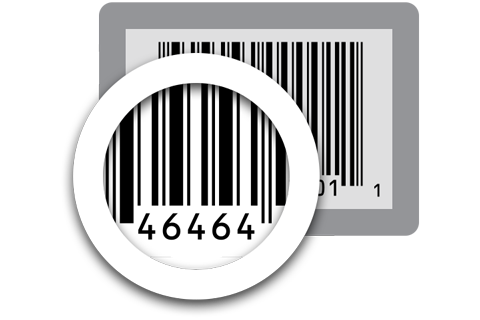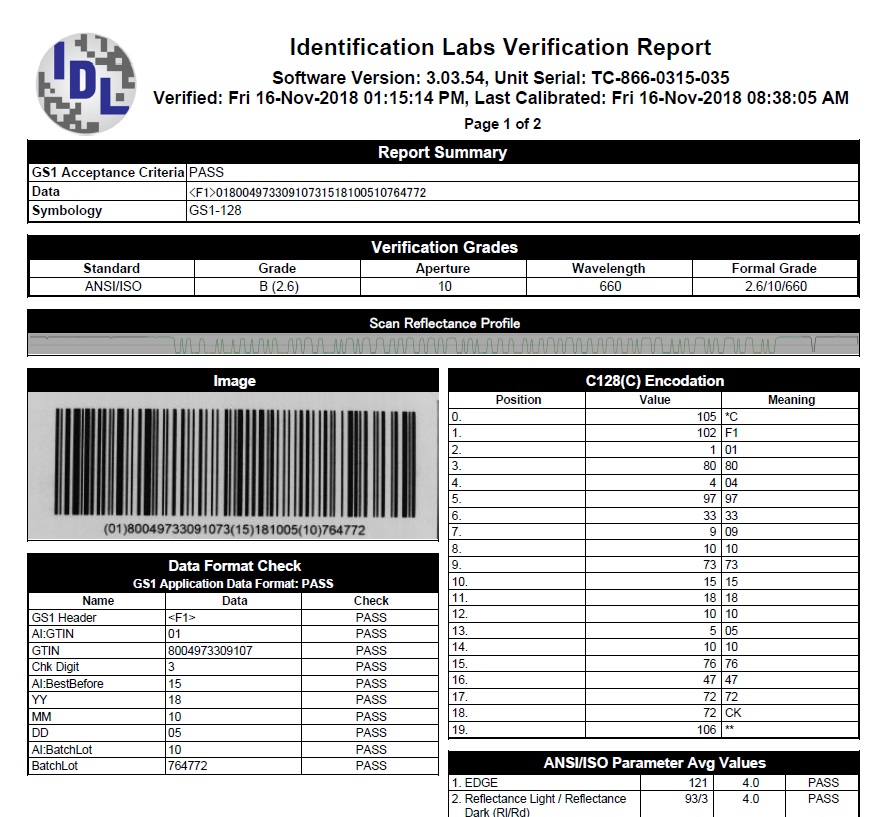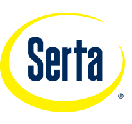Barcode Testing and Barcode Certification Explained
In today’s retail and manufacturing sectors, barcodes play a crucial role in ensuring efficient supply chains and retail operations. They are essential to inventory management, tracking, and accurate data capture at point-of-sale systems. As such, the quality of the barcode, both on items and logistic cartons, is paramount. But what exactly does this entail?
Identification Labs is the barcode print quality evaluation division of Bar Code Graphics. Retailers, manufacturers, and distributors around the globe rely on our unbiased, specialized services for barcode testing and barcode certification. Though they may sound similar, each has a distinct definition for maintaining and administering barcode compliance.
What is Barcode Testing?
Barcode testing is the process of evaluating a barcode’s print quality against accepted and recognized ISO print quality standards. ISO standards, such as ISO/IEC 15416 for linear barcodes and ISO/IEC 15415 for two-dimensional barcodes, provide a comprehensive framework for assessing various attributes of a barcode. These attributes include contrast, minimal reflectance, symbol dimensions, quiet zones, accuracy of encoded data., and overall readability under normal conditions. This standardized evaluation process identifies any potential issues that could impact a barcode’s functionality, which can result in a barcode not being able to be read by a scanner or encoding incorrect data.
Our testing laboratory leverages the relevant ISO standards’ testing methodologies to conduct printed barcode evaluations. A significant aspect of this testing phase also involves adherence to the GS1 General Specifications, which set the global standard for identifying products and services. This ensures that barcodes not only meet ISO quality standards but also align with the GS1 General Specifications, facilitating global interoperability and consistency.
Note: Identification Labs does provide evaluations for other industries, such as AIAG and ECIA, and tests results are filtered to meet the needs for each specific application.
What is Barcode certification?
Different industries, companies, and applications have requirements as to what/how an item is being identified and where/how a barcode is being scanned. For example, the FDA requirements for blood labeling are completely different from those of the grocery industry. There are even major differences in the retail industry. Many, but not all, industries and retailers are aligned with the GS1 global standards. Consequently, there are typically varying specifications among industries and individual companies.
Barcode print quality certification begins with testing barcodes following the underlying industry standard and then determining if each relevant parameter satisfies the minimum quality thresholds based upon a particular requirement. For example, our lab is the designated certification agency for Home Depot. Their suppliers are required to test both their GTIN barcodes as well as their SSCC-18 shipping labels. Consequently, the barcodes and labels we evaluate for certification must adhere to the GS1 Standards as well as dimensional and print quality thresholds established by Home Depot.
Certification is the process that warrants a barcode or label’s ability to integrate seamlessly into the workflows of retailers and manufacturers, confirming its compliance with both industry-specific and retailer-specific standards. For stakeholders, this assurance translates into confidence in the barcode’s reliability, ensuring that it contributes to operational fluidity rather than disruptions or compliance complications.
The Synergy of Testing and Certification
The synergy between barcode testing and certification is vital for maintaining the functional integrity of barcodes in commercial applications. Testing, grounded in ISO/IEC standards and GS1 General Specifications, is the first step in validating a barcode’s quality and its adherence to global best practices. Certification builds on this foundation, providing an additional layer of assurance tailored to specific operational needs. Many retailers and organizations have compliance offsets for non-performing barcodes. Barcode certification assures a trading partner that the supplier can provide barcodes and labels to satisfy their requirements.
Our certification staff are periodically questioned by suppliers as to why their sample failed certification, despite the ISO/IEC barcode verification report indicating a passing grade. These are situations where we have to educate companies on how to look at the data within the scan verification report to understand the threshold that was not met.
In conclusion, while barcode testing and certification are distinct processes, they are complementary in ensuring that barcodes function reliably and efficiently across the global retail and manufacturing landscape. The barcode certification services provided by our Identification Labs division, can suppliers ensure their barcodes satisfy their trading partners’ requirements and facilitate smooth operations and compliance with relevant standards and requirements.








Comments are closed.